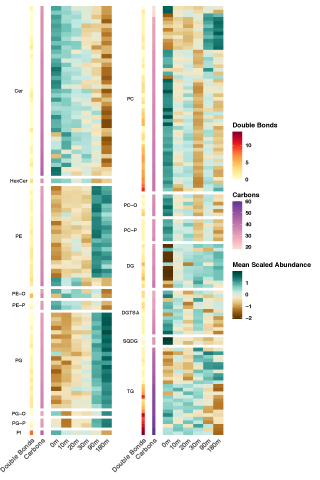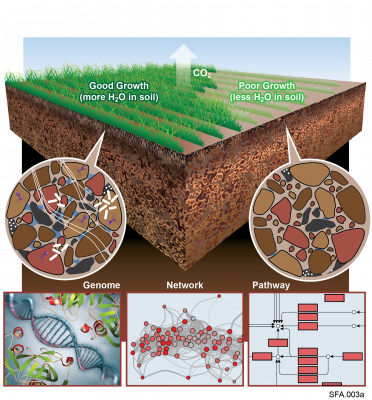Climate change is expected to increase the frequency of hotter and more intense droughts accompanied by aberrant precipitation events. Such extreme environmental shifts can trigger a complex cascade of microbial physiological responses that can impact the microbial community structure and functions. Here, we used lipidomics to capture the rapid metabolic response of an arid grassland soil microbiome to wet-up after a simulated drought. The results reveal that the soil lipidome is a robust indicator of the microbial community’s functional response, even at short time-scales during which community composition might not undergo substantial change. This work represents the most comprehensive coverage of a soil lipidome to date and suggests that changes in soil moisture and temperature invoke distinct metabolic changes across soil bacterial and fungal populations. This work also highlights the applicability of lipids for assessment of physiological responses of soil microorganisms to environmental stress.
Projects (1)
The Phenotypic Response of the Soil Microbiome to Environmental Perturbations Project (Soil Microbiome SFA) at Pacific Northwest National Laboratory is a Genomic Sciences Program Science Focus Area (SFA) Project operating under the Environmental Microbiome Science Research Area. The Soil Microbiome...
Datasets
45


